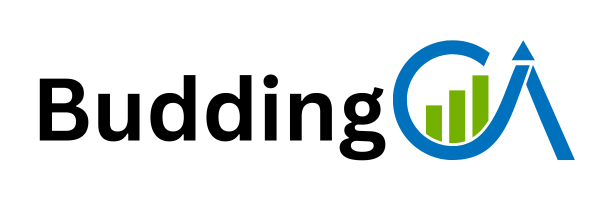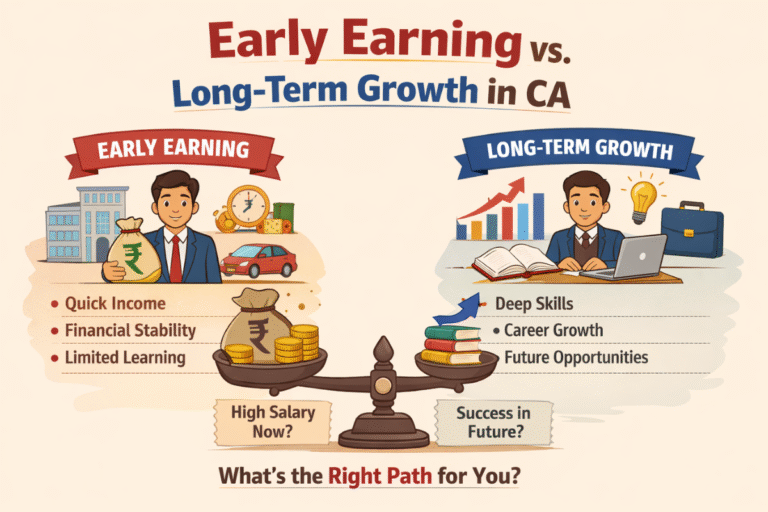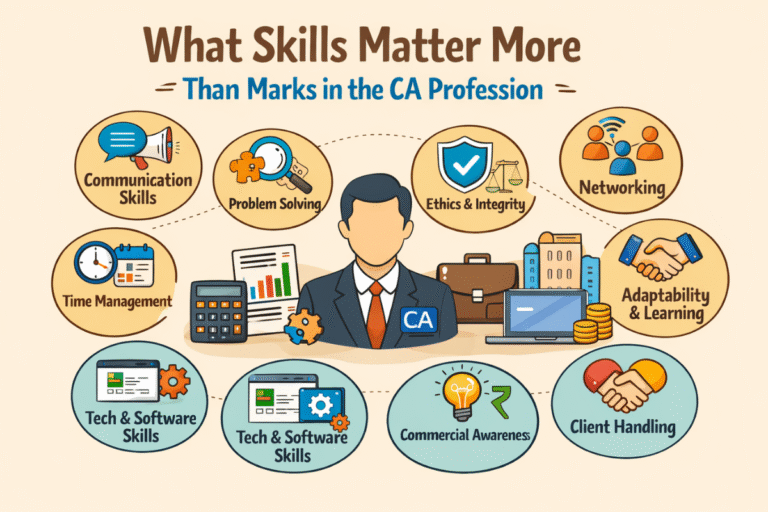For many Chartered Accountancy (CA) aspirants, the group discussion (GD) round in interviews often feels intimidating and unpredictable. However, GDs are more than just a routine part of the recruitment process — they serve a critical role in identifying the right professionals who can thrive in the dynamic world of finance and business. This article delves into why group discussions are so important for a CA, what recruiters look for, and how you can prepare to ace this stage confidently.
What is a Group Discussion and How Does it Fit in CA Interviews?
A group discussion is a face-to-face interaction among a small group of candidates, usually 6 to 8, where they discuss a given topic or case study. Typically lasting around 15 to 20 minutes, GDs evaluate candidates not just for their knowledge, but also for their communication skills, ability to think on their feet, teamwork, and leadership qualities.
In the CA recruitment process, especially for freshers, GDs serve as a gateway before personal interviews or technical tests. Many reputed companies and audit firms use GDs to shortlist candidates, as it helps them see beyond academic scores and resumes.
Why Do Recruiters Give So Much Importance to GDs for CAs?
The CA profession is not only about numbers and technical expertise. It demands constant interaction with clients, teams, regulators, and other stakeholders. Here’s why group discussions are essential:
1. Testing Communication Skills
One of the key reasons recruiters value GDs is to assess how well you can communicate your ideas. As a CA, you will often have to explain complex financial data or legal regulations to clients who may not have a background in finance.
A GD allows recruiters to see if you can:
- Express your views clearly and confidently
- Listen actively to others’ opinions
- Respond thoughtfully and respectfully
Effective communication builds trust, which is vital for any CA in advisory roles or audits.
2. Assessing Leadership and Teamwork
Group discussions are an ideal platform to showcase leadership potential. Recruiters observe:
- Who initiates the discussion?
- Who ensures everyone gets a chance to speak?
- Who summarises key points or steers the group towards consensus?
Leadership here doesn’t mean dominating the discussion. It means guiding, collaborating, and motivating — qualities every successful CA must possess.
3. Evaluating Analytical and Problem-Solving Skills
Often, GD topics revolve around current affairs, financial regulations, or real-world case studies. This tests your ability to:
- Understand complex issues quickly
- Analyse different perspectives
- Propose balanced, practical solutions
These skills are vital in roles like audit, taxation, compliance, and consultancy.
4. Observing Behavioural Traits and Attitude
Your attitude during the discussion reflects how you handle pressure, conflicts, and disagreements. Recruiters look for:
- Confidence without arrogance
- Open-mindedness
- Patience and diplomacy
- Emotional intelligence
Such traits can differentiate a good CA from a great one.
Types of Group Discussion Topics in CA Interviews
Understanding the types of topics helps you prepare better. Broadly, topics fall into two categories:
1. General Topics
These can be simple or technical:
- Simple topics: For example, “Should uniforms be mandatory in workplaces?” or “Are CAs better than MBAs?”
- Technical topics: These relate to finance, economics or industry-specific issues, such as “Impact of GST on Indian Economy” or “Role of CAs in fraud detection.”
Companies often pick technical topics aligned with their business. For instance, a mining company may ask about “Role of mining in India’s GDP.”
2. Case Study Topics
Leading companies sometimes replace general topics with case studies to simulate real-life scenarios. For example:
- “Select the best leader among stranded passengers after a crash.”
- “How to choose ethics over job security?”
Case studies require structured thinking, practical problem-solving, and ethical judgement — all crucial for a CA.
Common Challenges Candidates Face in GDs
Most candidates find GDs challenging due to the pressure and unpredictability. Some common issues are:
- Silence or hesitation: Candidates who don’t speak are often rejected because silence suggests lack of knowledge or confidence.
- Dominating the discussion: Being too aggressive or interrupting others can create a negative impression.
- Making generic or irrelevant points: This fails to showcase your domain expertise and may bore the panel.
- Speaking too late or softly: Your points might be missed if you wait too long or don’t project your voice.
How to Prepare and Excel in Group Discussions
Here are practical tips to help you perform well in GDs:
1. Brush Up on Current Affairs and CA-Related Topics
Stay updated on recent developments in finance, taxation, corporate laws, GST, IFRS, and economic policies. Reading newspapers and credible online sources daily will help you form informed opinions.
2. Practice Mock Group Discussions
Participate in at least 3 mock GDs before your interview. This builds confidence and helps you learn time management, speaking techniques, and how to engage with others effectively.
3. Develop a Clear Structure for Your Arguments
When making a point, use a simple framework:
- State your point clearly.
- Support it with data, examples, or logical reasoning.
- Link it back to the topic.
This makes your contribution more impactful and memorable.
4. Take Initiative, but Don’t Dominate
Start the discussion confidently if possible. Encourage quieter members to speak. Listen actively and build on others’ points rather than only pushing your own.
5. Maintain Positive Body Language and Voice Modulation
Speak clearly, with appropriate volume and pace. Maintain eye contact with the group and judges. A good posture exudes confidence.
6. Don’t Hesitate to Take a Different Stand
If everyone agrees on a point, offering a well-reasoned contrary view can make you stand out. Just ensure it is polite and backed by facts.
Real-Life Examples from CA Placements
- A candidate in a Maruti placement opposed the popular view that GST is beneficial, highlighting its uncertain impact on small businesses. This unique stance helped her get noticed.
- In a BPCL case study on ethics vs. job security, a candidate raised practical concerns about balancing both but spoke last and softly, so judges missed the point. The lesson? Timeliness and audibility matter.
Why Group Discussion Skills Matter Beyond Interviews
GD skills are not just for clearing interviews. As a CA, you will constantly:
- Participate in client meetings
- Present audit findings or financial reports
- Negotiate with stakeholders
- Lead teams and collaborate across functions
Being articulate, confident and analytical will set you apart throughout your career.
Final Thoughts
Group discussions are an essential part of the CA recruitment process because they test your readiness for the professional world. They reflect how well you can think, communicate and lead in real situations — skills that no textbook can teach alone.
Prepare well, practice consistently, and approach GDs with the right attitude. Speak early, speak relevantly, and most importantly, listen actively. This will not only help you crack the GD round but also pave the way for a successful career as a Chartered Accountant.
Calling all CA dreamers!
🔴 Are you tired of searching for the perfect articelship or job?
Well, fear no more! With 10K+ students and professionals already on board, you don't want to be left behind. Be a part of the biggest community around! Join the most reliable and fastest-growing community out there! ❤️
And guess what? It’s FREE 🤑
✅ Join our WhatsApp Group (Click Here) and Telegram Channel (Click Here) today for instant updates.




